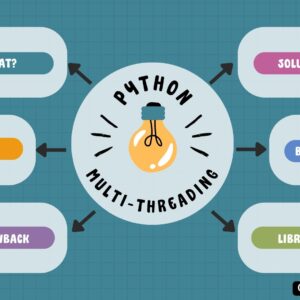
When Nostalgia Meets Algorithms: How AI Is Reshaping the Value of Your Favorite Old Songs
You know that catchy chorus you can’t stop humming from the ’90s? The one that’s been stuck in your head since you heard it in a coffee shop last week? What if I told you hedge funds in Manhattan and AI startups in Silicon Valley are fighting over who gets to own that earworm – and that your late-night Spotify streams are helping them decide its price tag? Welcome to the quiet revolution where artificial intelligence is turning yesterday’s hits into today’s hottest financial assets.
The $12 Billion Memory Gold Rush
New York-based investment firms like Hipgnosis Songs Fund have spent billions snatching up music catalogs from legacy artists – think Whitney Houston’s estate or Red Hot Chili Peppers’ early hits. But here’s the twist: The same machine learning tools that recommend your next Netflix binge are now determining whether 1995’s “I Kissed a Girl” by Jill Sobule (currently surging in search traffic) deserves a catalog valuation boost. AI platforms from companies like Los Angeles’ Musiio analyze streaming patterns, TikTok virality potential, and even karaoke app usage to predict which retro tracks will deliver ROI.
| City | Key Player | Recent Catalog Play |
|---|---|---|
| Nashville | Round Hill Music | $200M+ in country classics |
| San Francisco | Yousician | AI-driven guitar lesson song picks |
| Austin | Iconic Artists Group | Acquired Linda Ronstadt’s catalog |
Why Your Throwback Playlist = Wall Street’s New Stock Market
Chicago’s Rightsify recently made waves by using generative AI to create “new” Elvis Presley tracks using archival vocals. This isn’t just about digital resurrection – it’s about creating perpetual revenue streams. When a 30-year-old alt-pop song like Sobule’s gets featured in a viral Instagram Reel or becomes a Gen Z meme template, AI systems tracking these micro-trends automatically adjust its licensing fees and royalty projections.
The Dark Side of Music’s AI Makeover
While tech execs in Seattle celebrate platforms like SoundCloud’s new AI royalty distribution system, many working artists feel trapped. A Brooklyn-based indie musician told me: “My 2002 one-hit-wonder now funds my grocery bills thanks to a catalog deal, but I have zero control over how AI clones my voice for ads.” The FTC is currently investigating whether AI music tools violate right-of-publicity laws in California and other states.
Future-Proof Your Music Assets (Yes, Even Yours)
Whether you’re a casual listener or a retired garage band member:
- Use royalty tracking apps like Songtrust to monitor unexpected income
- Opt out of AI training datasets via services like RightsTech
- Consider fractional catalog investing through platforms like Royalty Exchange
The Bottom Line: That obscure track from your college years? It’s now a data point in machine learning models determining entertainment’s financial future – and with the right tools, you might finally get paid for those cringe-worthy lyrics you wrote in 2004.
Resources
FAQs:
- “Can AI really predict which old songs will become popular again?” Yes – platforms analyze sync licensing demand, social media chatter, and remix potential.
- “How do I know if my music is being used in AI training?” Services like TrackTek scan generative AI outputs for unauthorized samples.
- “Are catalog purchases a good investment?” Some funds promise 8-12% returns, but liquidity risks exist.
Tools:
- BeatBread (AI-powered music financing)
- Audoo (Shazam for public performance tracking)
5 Immediate Actions:
- Google “[Your Band Name] + royalties” – you might have unclaimed money
- Set up Google Alerts for songs you’ve written
- Check TOS on music upload platforms – many now include AI clauses
- Document all collaborators’ percentages – disputes spike with new income
- Explore blockchain royalty tracking via platforms like Vezt
Remember: In today’s AI-driven music economy, your teenage mixtape isn’t just nostalgia – it’s potential passive income. The machines are listening. Make sure they’re working for you.





